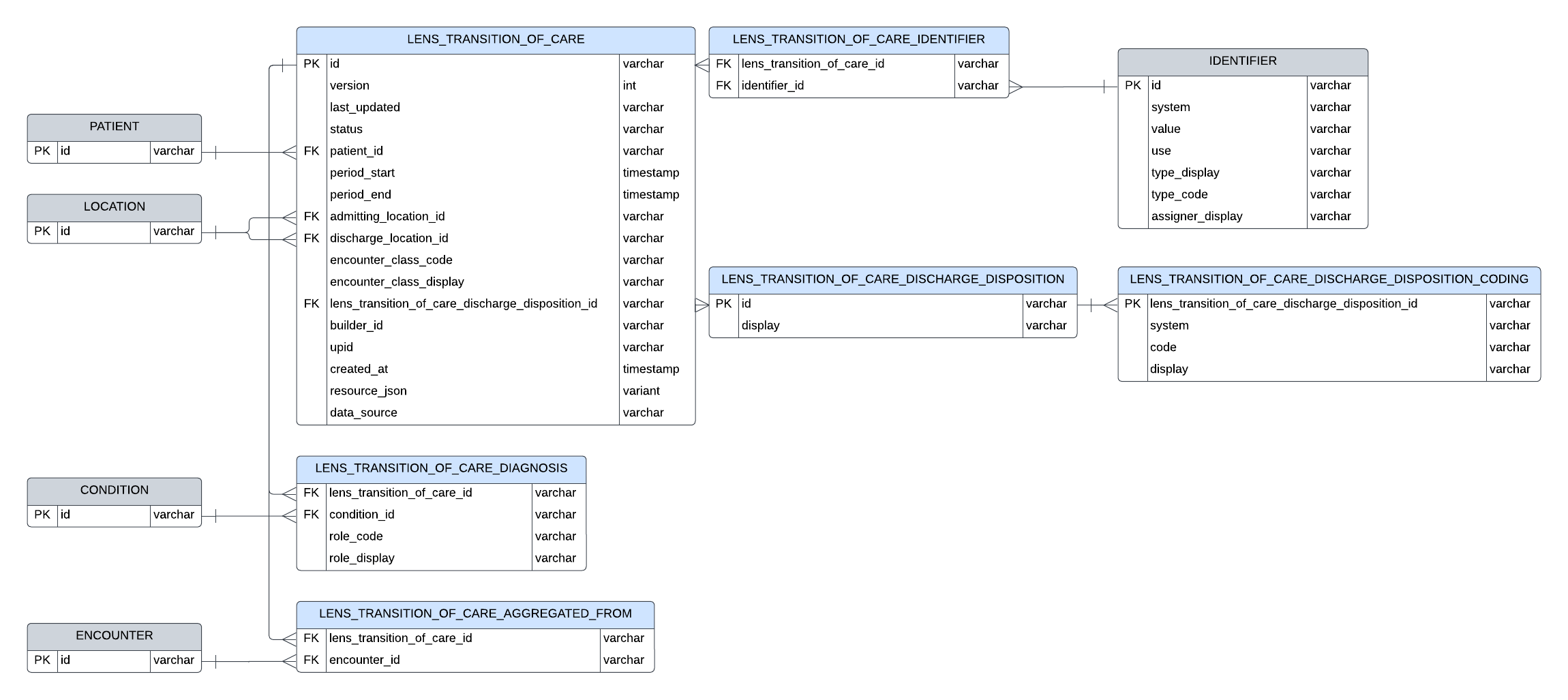June 3, 2024: Relational data mart schema now available to all customers
🥳 A new data mart schema in a familiar relational format is now available!
Before, data mart users had to extract JSON from key data elements to answer their analytical questions. Now, a data mart user can easily query the data directly without needing to deal with complex JSON structures. This makes the data more accessible and easier to use.
📣 No more LATERAL FLATTEN or UNNEST functions!
Features
The new data mart schema features include:
- Foundational resource types (Medication, Location, Practitioner, Organization) from third-party data sources
- The addition of new FHIR resources types: DeviceUseStatement, RelatedPerson
- The separation of Zus-summarized data (Lenses) into their own tables. Check out the lens_rxnorm_medication_statement, lens_snomed_condition, and lens_transition_of_care tables
- The full JSON of the FHIR resource for zero lossiness. See the resource_json column in the base resource tables.
- The top-leveling of codes. For example, in the Observation table, there are code_loinc and code_snomed columns
- The consistency of naming conventions for foreign keys
- The removal of columns that were always NULL
- Shortening of the univeral_patient_identifer column name to upid
Documentation
We have also improved our documentation to include entity relationship diagrams and a data dictionary.

Accessing the new schema
If you have a Zus-provisioned Snowflake reader account, you can now access the new relational schema in the {customer_name}_export_zus database and the {customer_name}_relational schema within your existing Snowflake reader account.
For those with a direct data mart share from Zus to your own Snowflake account, you will need to consume the share. Please refer to the following Snowflake documentation for instructions: Creating a Database from a Share.
Data Refresh
The new relational schema refreshes every 24 hours except for the following resource types — Condition, Device, DocumentReference, Encounter, Location, Organization, Patient, and Practitioner — which are refreshed every 3 hours.
